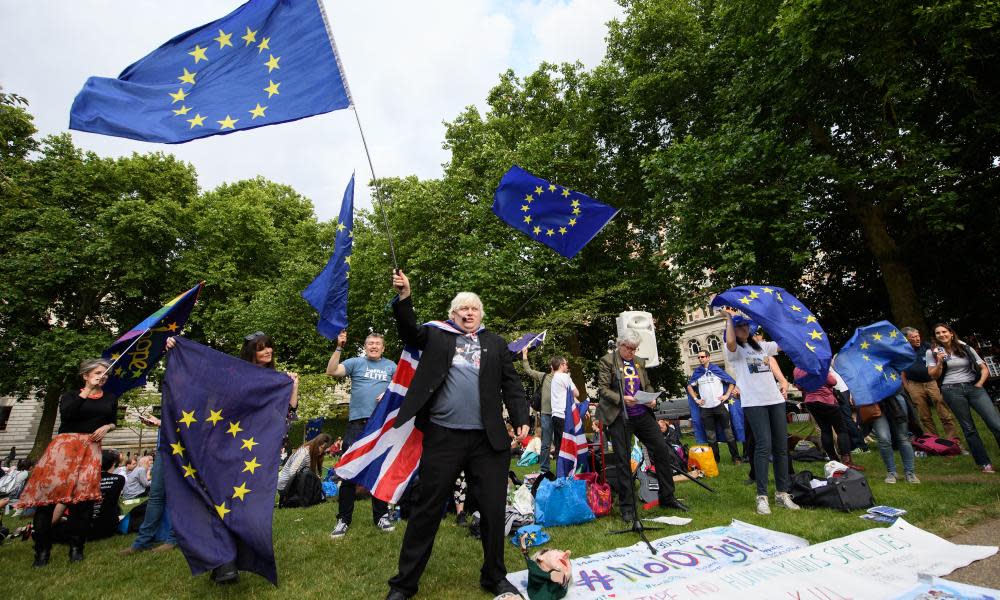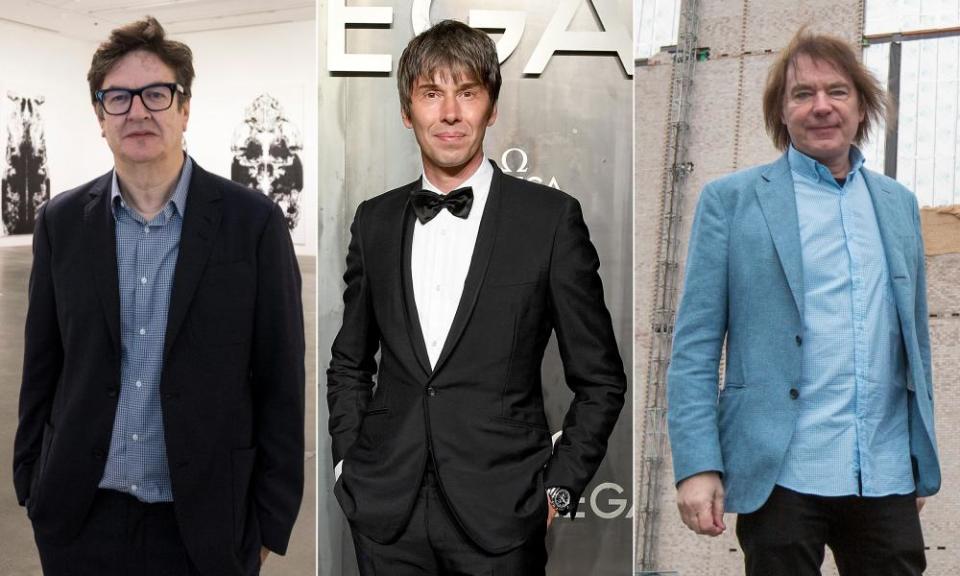Scientists and artists unite to warn: ‘give the young a say in shaping Brexit’

Leading European figures in culture, science and education, including physics professor and TV presenter Brian Cox and artist Mark Wallinger, will warn Britain’s EU negotiators this week of the damage that a hard Brexit would do to the UK and the rest of Europe.
They will make a striking plea to David Davis’s team: involve young people in your policymaking. They will say that the youth of both the UK and the EU – “effective agents for positive change” – must play a meaningful part in shaping what will be their futures.
A two-page communique, seen by the Observer, will be published on Tuesday by the British Council – the body funded by the Foreign Office to promote cultural relationships and the understanding of different cultures between the UK and other countries. It said the day after the referendum that it would “find ways to continue to work in partnership with other European countries”.
The council drew up the document after running three major Brexit conferences this year in Berlin, Madrid and London, involving 500 leaders in education, culture and science from 32 European countries – described by one young participant as “an exercise in political imagination”.
The communique is endorsed by more than 400 arts, academic and scientific institutions and individuals, including the Creative Industries Federation, British Museum, the Science Museum, the Tate, the National Portrait Gallery, the Royal Academy, the Royal Philharmonic Society, Rada, the universities of Oxford, Cambridge, Bristol and St Andrews, and – among others – Cox, Tristram Hunt, the director of the Victoria and Albert Museum, and the cellist and principal of Birmingham Conservatoire, Julian Lloyd-Webber. Wallinger, also endorsing the communique, told the Observer: “There should be no tariffs on the exchange of knowledge and ideas; no borders to creativity and research.”
Rebecca Walton, the British Council’s regional director, EU, said the three conferences had been held because while there was a close focus on Britain’s position in the negotiations, there had been little analysis of the consequences of Brexit for the rest of Europe.

Laying out a vision of continued collaboration across the Channel, the communique says: “For centuries, British scholars, scientists and artists have worked and shared ideas with their European counterparts, producing an untold number of scientific breakthroughs, academic achievements and great works of art, enriching us culturally and economically. This exchange of ideas and creativity has survived wars and revolutions. We must ensure it survives Brexit.”
To achieve this, the signatories – which include representatives from leading galleries and museums across Europe, the universities of Venice and Siena, the National Gallery of Ireland, the Royal Netherlands Academy of Arts and Sciences and the Cern research centre – want residency rights guaranteed for EU nationals living in the UK and British nationals living in the EU.
Maintaining that the cultural, scientific and educational worlds are by their nature international and mobile, they call for ease of movement across borders and, if necessary, for “cultural and educational permits” that would enable academics, curators, artists and musicians to continue to move easily between the UK and other EU countries.
They want to see UK institutions and individuals benefiting as now from educational programmes such as Erasmus+, and they call for the UK government to carry on contributing to their funding.
“We envisage a European open zone for intellectual and creative endeavour. Students, artists, academics, scientists, teachers, researchers and young people travel, operate, collaborate and innovate easily across borders, supported through funding and resources, opportunities and international exchanges. Society as a whole prospers across Europe as a direct result of this growth in talent, expertise and shared values. Young citizens are empowered, skilled and become capable leaders of our shared future,” it says.
They see young people as key to the Brexit negotiations. “We call on UK and other European leaders to give serious consideration to empowering and engaging young people as effective agents of positive change. If Europe is to prosper, young people must play a meaningful part in shaping what will be their futures. We therefore urge EU and UK leaders to proactively engage youth in Brexit policymaking.”
The communique says it can demonstrate a widespread consensus that cooperation and innovation must be prioritised during negotiations. Enhanced collaboration in cultural, scientific and educational endeavour would enable European economies to remain prosperous in an increasingly competitive world. “EU and UK leaders should take note of such a clear and strong consensus across Europe, which is rarely seen in the context of Brexit,” it says.

 Yahoo News
Yahoo News 
